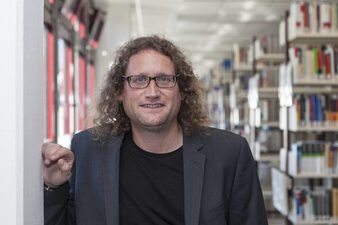Students from the Faculty of Applied Social Studies at Dortmund University of Applied Sciences and experts from partner universities in South Africa will provide impetus for debates on global justice and the consequences of globalization at the World Garden 2021 in Dortmund's Westfalenpark in June. Participation is possible online for all interested parties.
The students' presentations will mark the end of a year-long seminar on the consequences of globalization. Such projects, funded by the German Academic Exchange Service (DAAD) in cooperation with South African universities, usually result in a direct exchange. Due to the global coronavirus pandemic, it was not possible to meet in person in 2021. "I am all the more pleased that the Frau Lose association was able to bring the World Garden to Dortmund and that we can participate with digital lectures," says Prof. Dr. Michael Boecker, social scientist at Fachhochschule Dortmund. "In this way, we are living up to our own claim of assuming social responsibility by initiating discussions and debates and providing scientific support."
The students' dates
- Thursday, June 10, 2021, 5:30 p.m.: Social Cohesion in Community and Society(Opens in a new tab) . The lecture deals with the conditions of social cohesion in different communities and societies
- Friday, June 11, 2021, 5:30 p.m.: Police violence, racism and discrimination(Opens in a new tab) : human rights in international comparison and the role of social work. This lecture will give an insight into the world of human rights.
- Thursday, June 17, 2021, 5:30 pm: Sustainability in the context of the coal sector(Opens in a new tab) . But what does sustainability actually mean? Why is sustainable development so important? Which mechanisms hinder sustainable development? These questions will be explored in the lecture using the example of the coal sector in Germany and South Africa.
- Friday, 18 June 2021, 5.30 pm: Globalization and poverty(Opens in a new tab) . The lecture explores the issues of poverty in the context of globalization. Which part of the world's population is most affected and how do we define basic individual needs? When exactly do we start talking about poverty and what does globalization have to do with it, if anything?
From the reality of life under apartheid
Prof. Boecker will draw particular attention to the lecture by Dr. Maud Mthembu(Opens in a new tab) , lecturer in social work at the University of KwaZulu-Natal in South Africa. She talks about life during apartheid and the time afterwards. "She grew up in South Africa and experienced this time herself," reports Prof. Boecker. "This makes her lecture particularly impressive and authentic." Dr. Maud Mthembu will speak on Thursday, 10 June 2021, from 7 to 8 pm.
On Friday, June 11, 2021 from 7 p.m. to 8 p.m., Prof. Tanusha Raniga(Opens in a new tab) from the University of Johannesburg will report on the special situation of single mothers in South Africa. These two lectures will be held in English. On Thursday, 17 June 2021 from 7 p.m. to 8 p.m., the Cologne-based Africanist and historian Prof. Dr. Marianne Bechhaus-Gerst(Opens in a new tab) will deal with the colonial era and its impact on the present.
The World Garden is an interactive travelling exhibition that was developed in 2005 by "Eine Welt Netz NRW" on the subject of globalization and global justice. Since then, 6,265,000 people have visited the World Garden. The World Garden is developed further every year. In this way, it remains up-to-date and constantly changes its face. More than 50 initiatives and stakeholders from Dortmund and the surrounding area are involved in the World Garden in Westfalenpark.
Prof. Michael Boecker, Dr.
Appointments can be arranged at short notice by e-mail

